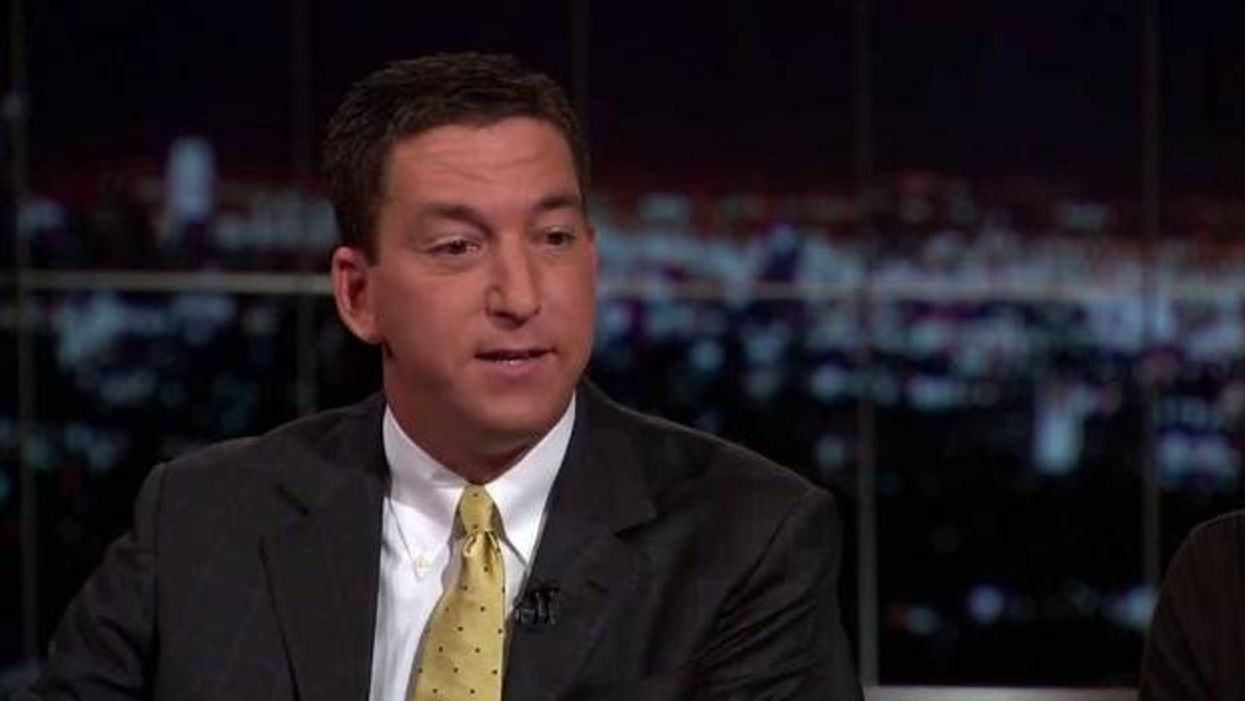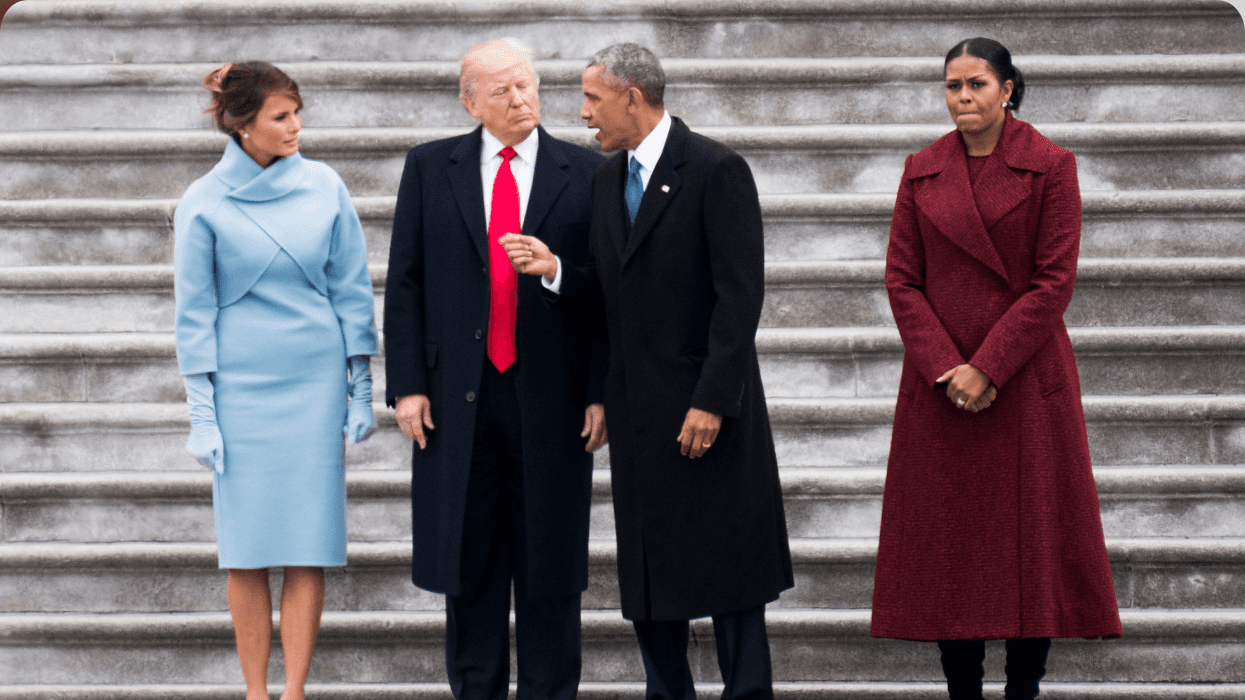This week, we learned two discomfiting things about the Obama administration. First, on Wednesday we learned the Department of Justice had secretly obtained phone records for millions of American Verizon wireless customers. These records, the White House said, are "a critical tool in protecting the nation from terrorist threats." Then, yesterday we learned that this surveillance system's far more than just a few million phone records. The Obama Administration has been collecting Internet records from companies like Google, Facebook, and Apple, all in the name of "national security."
We know all of this because of gay lawyer-turned-journalist Glenn Greenwald. After working as an independent blogger, Greenwald first went to Salon and then from there to The Guardian, the paper for which he broke the two aforementioned stories. Though Greenwald has poked at the government and its noxious surveillance tactics in the past -- his entire journalistic career is based on it -- this new, classified information's far more damning for the White House and the administration than anything he's produced in the past and will no doubt bring him fresh scrutiny, both official and unofficial.
Greenwald's gone beyond being a reporter collecting sources and breaking the news to being the news. Some opponents are even describing him as a "leaker"--not unlike Bradley Manning, the army soldier currently on trial for transmitting thousands of classified documents to Wikileaks. If that's the case, should Greenwald be punished for passing along the government's secrets? Some would say yes, and although Attorney General Eric Holder insists journalists are safe, saying, "The department's goal in investigating leak cases is to identify and prosecute government officials who jeopardize national security by violating their oaths, not to target members of the press or discourage them from carrying out their vital work," many wonder whether Greenwald's in danger.
Greenwald, who described himself in the New York Times today as an "activist and advocate, is well aware his work has put him in an uncomfortable and potentially tenuous position in which he's forced to protect himself. Just as a precaution, to protect his source, Greenwald has installed new security on his laptop to protect it from prying eyes, and he doesn't have any plans to return to the United States, within the government's reach. Greenwald lives in Brazil with his husband (read Out's 2011 profile here). As we know, the U.S. government will not recognize same-sex relationships, a law that led Greenwald abroad and, by a stroke of perverse luck, outside the government's reach.
But this debate around Greenwald--and the broader issues of whistleblowing or leaking or whatever you want to call it--isn't about secrets and lies. It's about public and private, civil distinctions gay men have always had to navigate with care. To him, his and others' work is about putting the government back in its very public place. In today's Guardian, Greenwald explains himself:
"[The government] can threaten to investigate all they want. But as this week makes clear, and will continue to make clear, the ones who will actually be investigated are them.
"The way things are supposed to work is that we're supposed to know virtually everything about what they do: that's why they're called public servants. They're supposed to know virtually nothing about what we do: that's why we're called private individuals.
...
"There seems to be this mentality in Washington that as soon as they stamp TOP SECRET on something they've done we're all supposed to quiver and allow them to do whatever they want without transparency or accountability under its banner. These endless investigations and prosecutions and threats are designed to bolster that fear-driven dynamic. But it isn't working. It's doing the opposite."
Greenwald goes on to champion the role of free press agents like himself and to describe his work as "adversarial journalism," a fair phrase and one that perfectly describes the hostile space in which Greenwald and other journalists hoping to speak truth to power find themselves.






























I watched the Kid Rock Turning Point USA halftime show so you don't have to
Opinion: "I have no problem with lip syncing, but you'd think the side that hates drag queens so much would have a little more shame about it," writes Ryan Adamczeski.